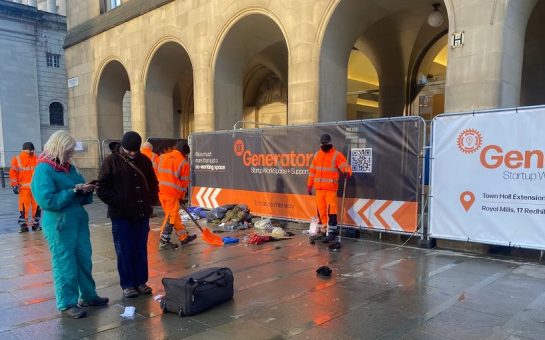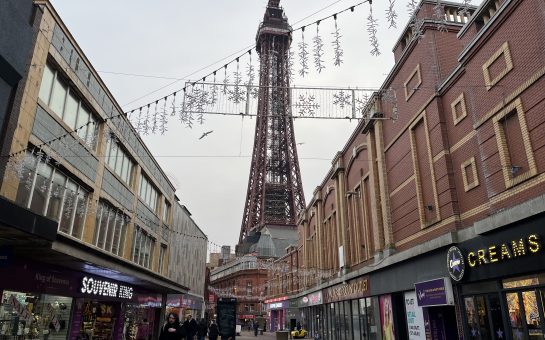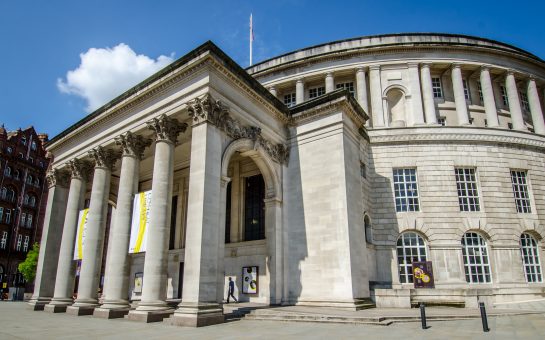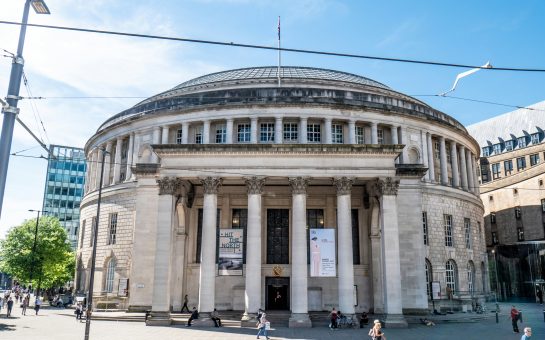As the foremost city of the industrial revolution and the dramatic social upheavals that accompanied it, Manchester has a rich and varied history of political debate.
In the 19th century it became a bastion of economic liberalism thanks to the ideas of Richard Cobden and John Bright, who believed free trade would lead to a more just and equitable society.
It also hosted the first Trades Union Congress, while Marx and Engels worked on their radical social theories in Chetham’s Library.
With the city once more poised to become a political pioneer as the government devolves key powers to the Greater Manchester Combined Authority, civic life is being reinvigorated by a new series of high-profile debates.
Inspired by the illustrious history of progressive thought in Manchester, a group known as Discuss is bringing together figures from across the political spectrum to examine the most pressing issues of our time.
Last week’s event, which took place in the impressive surroundings of the newly-refurbished Central Library, was attended by Labour MP Tristram Hunt, UKIP’s Douglas Carswell, Guardian columnist Seamus Milne and local businesswoman Vanda Murray.
They discussed the motion ‘This is the age of political easy answers’, which was centred upon the idea that political insurgents such as the Scottish National Party and newly-elected Labour leader Jeremy Corbyn are achieving success by proposing overly simplistic solutions to complex problems.
A lively debate ensued, with Hunt and Murray backing the motion and Milne and Carswell opposing it.
Murray was concerned about the ‘business-bashing’ rhetoric of the new politics, claiming politicians and businesses need to work together, while Hunt warned that social media is creating insular groups of people who are unwilling to confront wider, more complex issues.
In contrast, Milne blamed the effects of neoliberalism for the rise of ‘technocratic politics’ that crowds out authentic alternatives – a trend summed up by Margaret Thatcher’s slogan ‘There is no alternative’ – and Douglas Carswell argued that politics has become a cartel of self-serving careerists that is being challenged by parties such as his own.
The event was a sellout, and members of the audience got their chance to quiz the panel in a question and answer session that followed the debate. In the end, the motion was carried by a wafer-thin margin – 72 votes to 69.
Founder of Discuss and chair of the debate Michael Taylor believes attracting a wide range of speakers, both local and national, reflects Manchester’s status as a global city.
He sees the involvement of students as key to the success of future debates, and he relishes the opportunities that will be opened up by Devo Manc, saying that it could be a ‘slam dunk’ for the city – providing all political parties work together to make the project a success.
He told MM: “Manchester is the home of world-changing ideas; trade unionism, the co-operative tradition, the suffragettes and free trade capitalism, to name just a few.
“As a political project Devo Manc is functional, logical and makes sense, but it lacks a strong emotional connection to people’s lives.
“By stirring that spirit of argument, ideas and debate, we hope to generate a ‘Manchester Way’, a tradition and a civic self-confidence that our forefathers deserve.”
The subject of the next Discuss debate is the free market, with the People’s History Museum in Spinningfields set to play host to what promises to be another stimulating discussion.
‘The Market Will Save Us’ asks whether the financial crisis was a minor setback for freemarketeers or a much more significant event that will profoundly change the political and economic landscape.
In the early 19th century, it was the lack of representation at Westminster that framed the political debate in Manchester – concerns which are echoed by contemporary disaffection with political elites.
But with the city forging a new identity as a pioneer of devolution, political debates are now helping to raise Manchester’s profile, shaping its future and ensuring it remains at the heart of the nation’s intellectual life.
The next Discuss event – The Market Will Save Us – takes place tomorrow night from 6.30pm at the People’s History Museum.
For more information click here.



